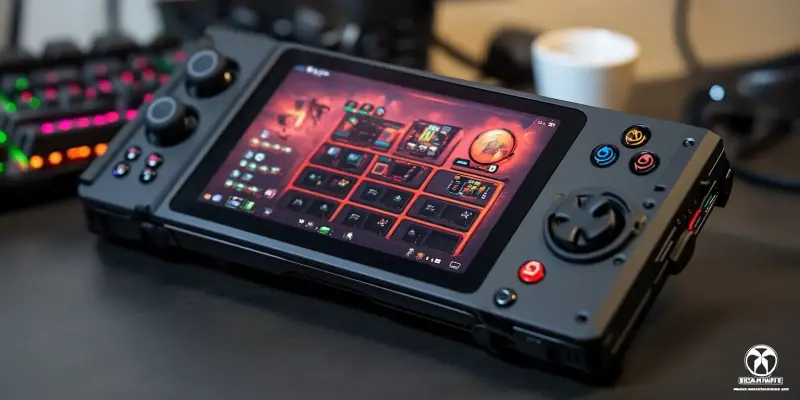In the increasingly competitive world of handheld gaming PCs, the Ayaneo 3 has emerged with a fascinating new approach that is catching the attention of gaming enthusiasts. Its unique modular design sets it apart from other devices in the market, allowing users to easily swap out various controller modules to completely customize their gaming experience. This feature provides the flexibility of different combinations of analog sticks, buttons, D-pads, and trackpads, ensuring that gamers can tailor the handheld to their specific needs. The magnetic, swappable controller modules of the Ayaneo 3 bring a level of personalization rarely seen in the gaming hardware industry.
The Ayaneo 3 is powered by either the AMD Ryzen AI 9 HX 370 or the Ryzen 7 8840U APU, with each offering different specifications to suit various gaming demands. The device boasts a high-refresh 7-inch display, available in both OLED and LCD variants depending on the choice of chip. The AI 9 model is equipped with a Radeon 890M GPU, which features 16 RDNA 3.5 compute units, while the Ryzen 7 model comes with 12 RDNA 3 units. This gaming PC also offers over 50 layout combinations for its controller modules, allowing users to rotate and position them according to their preferences, further emphasizing the device’s adaptability and user-oriented design. With such extensive customizability, the Ayaneo 3 is truly pushing boundaries in handheld gaming technology.
Expanding Market Presence
Newly stepping into the US market, Ayaneo has made significant efforts to reach a wider audience by launching its devices through major retailers like Best Buy and its own website. This move reflects the company’s commitment to becoming a key player in the handheld gaming industry, catering to the growing enthusiasm for such devices. Despite the detailed information on its customizable features, specific details regarding the Ayaneo 3’s price, storage capacity, and screen resolution are still under wraps. However, gaming enthusiasts won’t have to wait long, as Ayaneo has scheduled a live stream event on December 26, 2024, where the company promises to reveal these crucial details and perhaps more insights into what makes this new device unique.
Ayaneo’s strategic entry into the competitive US market could play a crucial role in establishing its brand and expanding its user base. The innovative modular design of the Ayaneo 3 has the potential to attract gamers seeking a higher level of personalization and performance that current handheld PCs may not offer. As the live stream date approaches, anticipation builds among gamers eager to learn more about the inventive capabilities and the potential price point of this cutting-edge handheld gaming PC. The Ayaneo 3’s ability to stand out with its flexibility and adaptability will be vital in a market full of formidable competitors.
A New Era of Gaming Flexibility
In the competitive arena of handheld gaming PCs, the Ayaneo 3 stands out with an innovative approach that’s capturing the interest of gamers everywhere. Its standout feature is its modular design, which allows users to easily swap different controller modules, making it highly customizable. Gamers can mix and match analog sticks, buttons, D-pads, and trackpads to create a setup that best fits their style. This magnetic, swappable design brings a level of personalization rarely seen in gaming hardware.
The Ayaneo 3 runs on either the AMD Ryzen AI 9 HX 370 or the Ryzen 7 8840U APU, each tailored to different gaming needs. It features a high-refresh 7-inch display, available in both OLED and LCD based on the selected chip. The AI 9 model includes a Radeon 890M GPU with 16 RDNA 3.5 compute units, while the Ryzen 7 version has 12 RDNA 3 units. Furthermore, this gaming PC offers over 50 layout combinations for its controller modules, allowing users to rotate and arrange them as they prefer, emphasizing its adaptable and user-friendly design. With its extensive customizability, the Ayaneo 3 is setting new standards in handheld gaming technology.

